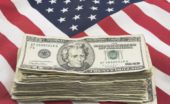Molly Minturn - My family is heartbroken to share that my father died in surgery on Monday, Feb. 10. It…
Wednesday Night #1985 with Peter Berezin
Written by Diana Thebaud Nicholson // April 1, 2020 // Wednesday Nights // Comments Off on Wednesday Night #1985 with Peter Berezin
 As Wednesday Night Zooms, we welcome back, Peter Berezin. The coronavirus COVID-19 continues to not only dominate the news cycle, but to do so in every category from mental health, to education to politics -local and geo-, global governance and supply chains. Few topics are more pertinent than the global economy and the WN Zoom participants are eager to hear and debate your views.
As Wednesday Night Zooms, we welcome back, Peter Berezin. The coronavirus COVID-19 continues to not only dominate the news cycle, but to do so in every category from mental health, to education to politics -local and geo-, global governance and supply chains. Few topics are more pertinent than the global economy and the WN Zoom participants are eager to hear and debate your views.
Highlights of the recent BCA Second Quarter 2020 Strategy Outlook: World War V
- The world is in the midst of a deep recession. Growth should recover in the third quarter as the measures taken to compensate for the initial slow response to the crisis are relaxed and existing measures are better calibrated to reduce economic distress.
- Continued monetary support and unprecedented fiscal stimulus should help drive the recovery once businesses reopen and workers return to their jobs.
- Investors should maintain a modest overweight to global equities. US stocks will lag their foreign peers over the next 12 months.
- The US dollar has peaked. A weaker dollar should help lift commodity prices and the more cyclical sectors of the stock market.
- High-yield credit spreads will narrow over the next 12 months, but we prefer investment-grade credit on a risk-reward basis.
- Investors are understating the potential long-term inflationary consequences of all the stimulus that has been unleashed on the global economy. Buy TIPS and gold.
Last Friday (27 March) President Trump signed the massive $2 trillion emergency spending bill into law. When the legislation was being hammered out, Democrats demanded oversight of the “slush fund” that in the Republican plan would have let the Treasury Secretary distribute half a trillion dollars to corporations at his own discretion, with no oversight. Trump’s statement that, “I’ll be the oversight” gave rise to, putting it mildly, consternation. The solution was the creation of the Pandemic Response Accountability Committee; a new “special inspector general” will oversee the Treasury Department’s disbursal of $500 billion in funds to support distressed industries and shore up the collapsing economy. Trump is slated to nominate that inspector general, who will then face Senate confirmation.
One friend has asked about this piece that appeared in the NYT last week. Comments? How the Fed’s Magic Money Machine Will Turn $454 Billion Into $4 Trillion
The central bank takes Treasury Department loan guarantees and uses them to stand(sic) up huge programs. Here’s how that works.
As the toll mounts around the world, the only continent that is corona virus-free is Antarctica.
The situation in Europe is dire and commentators are now talking about the collapse of the EU as a longer-term consequence and around the world. Apart from Singapore and Vietnam, where cases were detected early and governments acted quickly, Southeast Asia is now only waking up to the severity of the challenge.
Of perhaps greatest concern is India 1.3 billion people. A 21-day lockdown. Can India curb the coronavirus? Modi’s lockdown had social and economic impacts even sharper than lockdowns in richer countries. Millions of Indians who depend on each day’s wages for their daily meal were thrown out of work. Migrant workers packed buses and trains home, potentially taking the virus into rural areas. And as transport options dried up, many families in New Delhi and other major cities simply began to walk to their distant villages, with little access to food. “We risk converting a health crisis into a socioeconomic crisis,” says Ravi Duggal, a public health activist.
C. Uday Bhaskar writes The pain of the migrant worker: State must not be selective in concern for Indian citizen
“Saturday (March 28) marked the fourth day since Prime Minister Narendra Modi announced a 21-day national lockdown that has had huge disruptive consequences across the country and differently affected the lives of more than a billion people
While containing the potential for a galloping public health challenge was no doubt the highest priority when Modi took his decision (March 24), the fact that the country was totally unprepared is now becoming tragically visible in different clusters across India.”
While Saudi Arabia is urging more than 1 million Muslims intending to perform the hajj to delay making plans this year — comments suggesting the pilgrimage could be cancelled due to the new coronavirus pandemic, the Middle East has over 75,000 confirmed cases of the virus, most of those in Iran, and over 3,400 deaths. Iran’s health ministry spokesman, Kianoush Jahanpour, said Wednesday that the virus had killed another 138 people, pushing the country’s death toll to 3,036 amid 47,593 confirmed cases.
As the coronavirus pandemic brings the world to a juddering halt and anxious citizens demand action, For Autocrats, and Others, Coronavirus Is a Chance to Grab Even More Power – Leaders around the world have passed emergency decrees and legislation expanding their reach during the pandemic. In Hungary, the prime minister can now rule by decree. In Britain, ministers have what a critic called “eye-watering” power to detain people and close borders. Israel’s prime minister has shut down courts and begun an intrusive surveillance of citizens. Chile has sent the military to public squares once occupied by protesters. Bolivia has postponed elections.
We are grateful to Brett House and his Scotiabank Economics’ colleagues for the new *********@********nk.com&source=mail”>Latin America Weekly with its news and analysis of sudden stops in economic activity, export demand, and capital flows hitting the region and all emerging markets–and responses by policy makers.
Almost eliminated from coverage is the on-going oil-price war. World oil demand, normally around 100 million barrels a day, will likely be down by 30 millions barrels a day in April and has yet to bottom out as lockdowns due to the virus continue. Donald Trump has attempted to broker an end, but Jared Kushner’s good friend MbS remains adamant and the Saudis are flooding crude markets.
Meanwhile, Alberta’s United Conservative government announced Tuesday it is throwing its financial heft behind the long-delayed Keystone XL pipeline. The investment of $1.5 billion, plus a $6-billion loan guarantee, aims to accelerate construction of the massive project. Check out No, Jason Kenney, Donald Trump won’t save Alberta’s oil industry by Max Fawcett, former editor of Alberta Oil magazine.
Two important pieces from The Reuters Institute for the Study of Journalism
How journalists can help stop the spread of the coronavirus outbreak
11 tips on how to report on the outbreak from Trudie Lang and Peter Drobac, two public health experts from Oxford University
COVID–19 has intensified concerns about misinformation. Here’s what our past research says about these issues
Uncertainty and controversy around the COVID–19 pandemic has intensified the debate about misinformation in the last few weeks. “We’re not just fighting an epidemic; we’re fighting an infodemic”, said WHO Director-General Tedros Adhanom Ghebreyesus.
We agree. It may not be misinformation, but much of it appears to be conflicting and some of the prescriptions for self-care from doctors and other experts is so demanding that it may well push people into a state of rebellion. Currently the debate is to mask or not to mask. The Government of Canada’s How to quarantine (self-isolate) at home when you may have been exposed and have no symptoms is likely the most reliable for our purposes.
As Andrew Caddell writes in the Hill Times (paywall has been lifted) today, This pandemic must be understood, not feared, and that’s why good data is crucial
Meantime, we allow ourselves to take a wee bit of comfort from Restrictions Are Slowing Coronavirus Infections, New Data Suggest which cites “rapid drops in the numbers of fevers — a signal symptom of most coronavirus infections — recorded in states across the country, according to intriguing new data produced by a U.S. medical technology firm.”
For your entertainment – and we certainly need it!
Family recreates ‘One Day More’ from Les Misérables in hilarious quarantine spoof – clever as well as hilarious.
How to talk to your dog about social distancing
Orangutans and otters – who knew?
Compelling reads
Covid-19 Changed How the World Does Science, Together
(NYT) Never before, scientists say, have so many of the world’s researchers focused so urgently on a single topic. Nearly all other research has ground to a halt.
While political leaders have locked their borders, scientists have been shattering theirs, creating a global collaboration unlike any in history. Never before, researchers say, have so many experts in so many countries focused simultaneously on a single topic and with such urgency. Nearly all other research has ground to a halt.
Normal imperatives like academic credit have been set aside. Online repositories make studies available months ahead of journals. Researchers have identified and shared hundreds of viral genome sequences. More than 200 clinical trials have been launched, bringing together hospitals and laboratories around the globe.
“I never hear scientists — true scientists, good quality scientists — speak in terms of nationality,” said Dr. Francesco Perrone, who is leading a coronavirus clinical trial in Italy. “My nation, your nation. My language, your language. My geographic location, your geographic location. This is something that is really distant from true top-level scientists.”
Anthony Fauci Shows Us the Right Way to Be an Expert
He’s grounded in humility and humanity; he uses plain language; he admits uncertainties and failings; and he refuses to make the science overtly political
(Scientific American) Anthony Fauci has been an extraordinary presence during the COVID-19 crisis: calm yet urgent, informative yet plain-spoken. Along the way, he’s doing something even more difficult than explaining COVID-19. He’s providing insight about the role of the scientific expert in a liberal democracy.
Scientific experts are considerably diminished from what they were some decades ago, as our debates about climate change, vaccinations, genetically modified organisms and many other topics reveal. Archon Fung, a scholar of democratic governance at Harvard’s Kennedy School, describes our state of affairs as “wide aperture, low deference democracy”: almost everything is now up for public debate, even climate science, and those who have traditionally led such debates are losing their influence.
There are many reasons for the decline of experts. The new media environment, political polarization and growing economic inequality have all helped make the public suspicious of people seen as belonging to the existing power structure. We’re in an increasingly revolutionary mood. In politics and elsewhere, we’re attracted to ideas that seem to flout the rules.
Travels with the coronavirus, the account by Bruno Maçães, a former Europe minister for Portugal, senior adviser at Flint Global in London and a nonresident senior fellow at the Hudson Institute in Washington, portrays the early days in Asia of public awareness of the approaching pandemic and the highly differing national reactions “LAHORE, Pakistan — I begin my journey through Asia in Pakistan on the day Chinese authorities publicly confirm reports of an outbreak of coronavirus in Wuhan.”
Prashanth Parameswaran analyses The Geopolitics of Southeast Asia’s Coronavirus Challenge for The Diplomat
While the dust is still settling, it is worth examining what the potential geopolitical implications of COVID-19 will be on the region
Leaving the manufacture of ventilators, masks or rubber gloves to others with the capabilities, we could invest our efforts in developing a new and improved hand sanitizer.
The history and mystery of Purell, the most sacred goo of our new era



